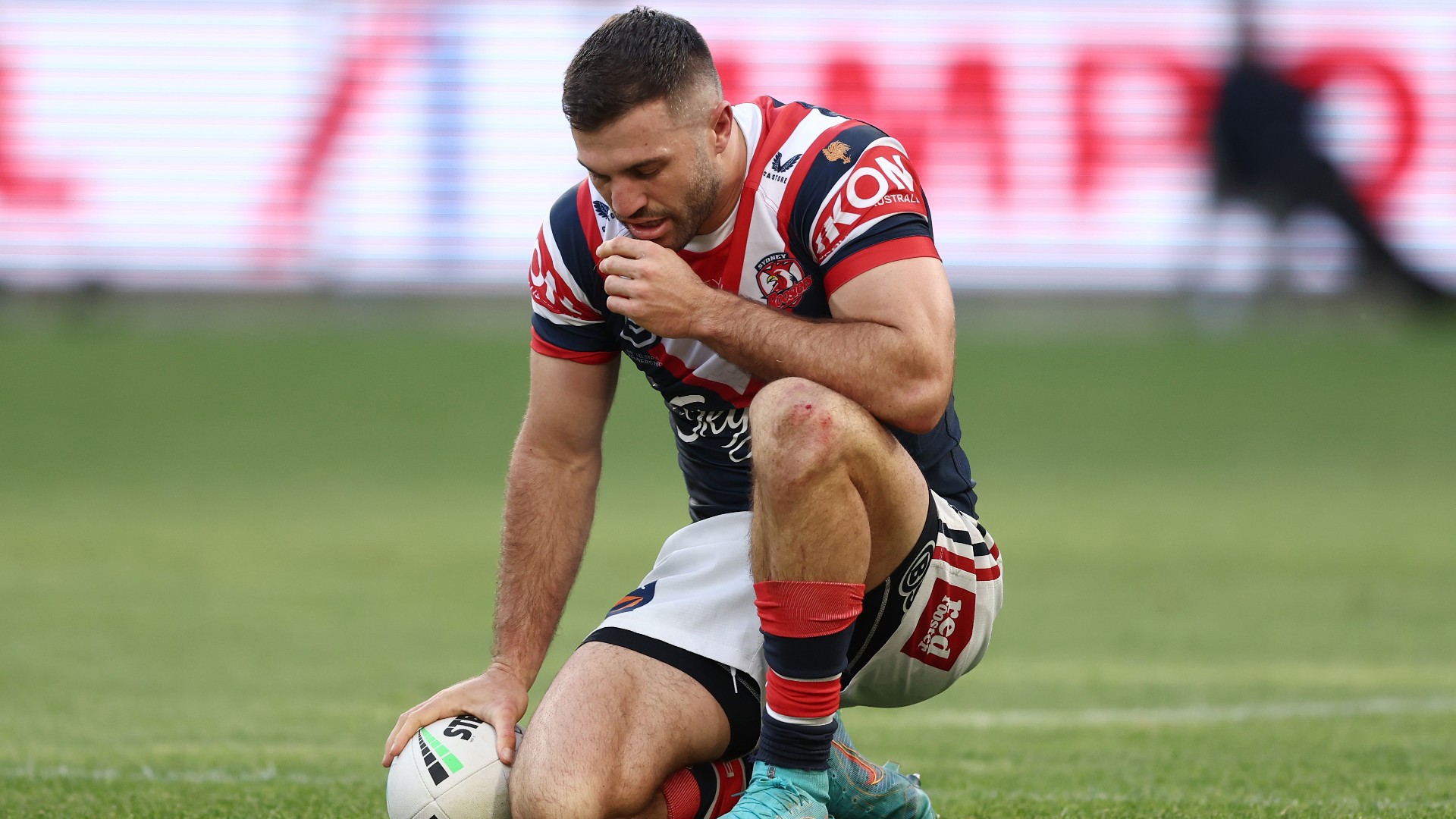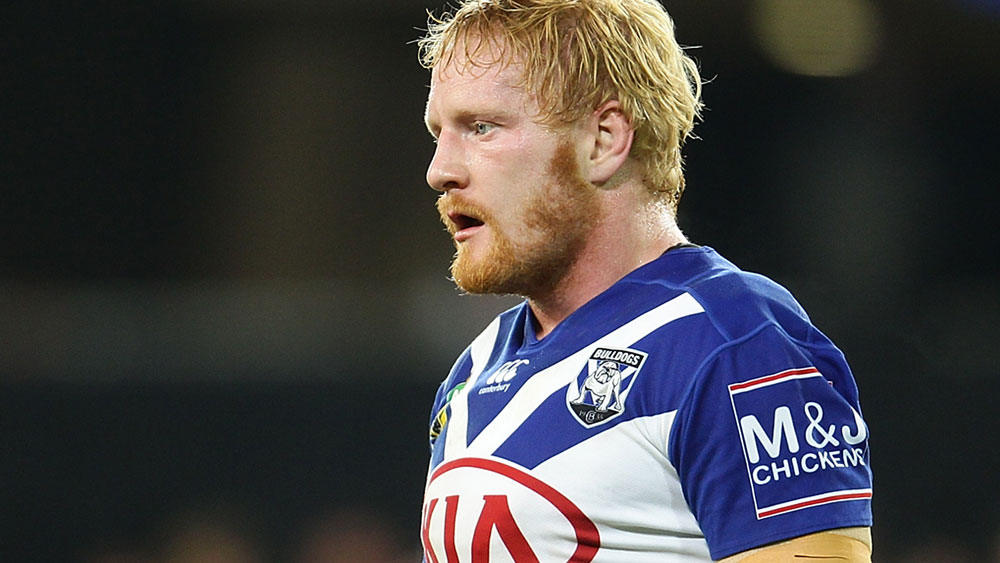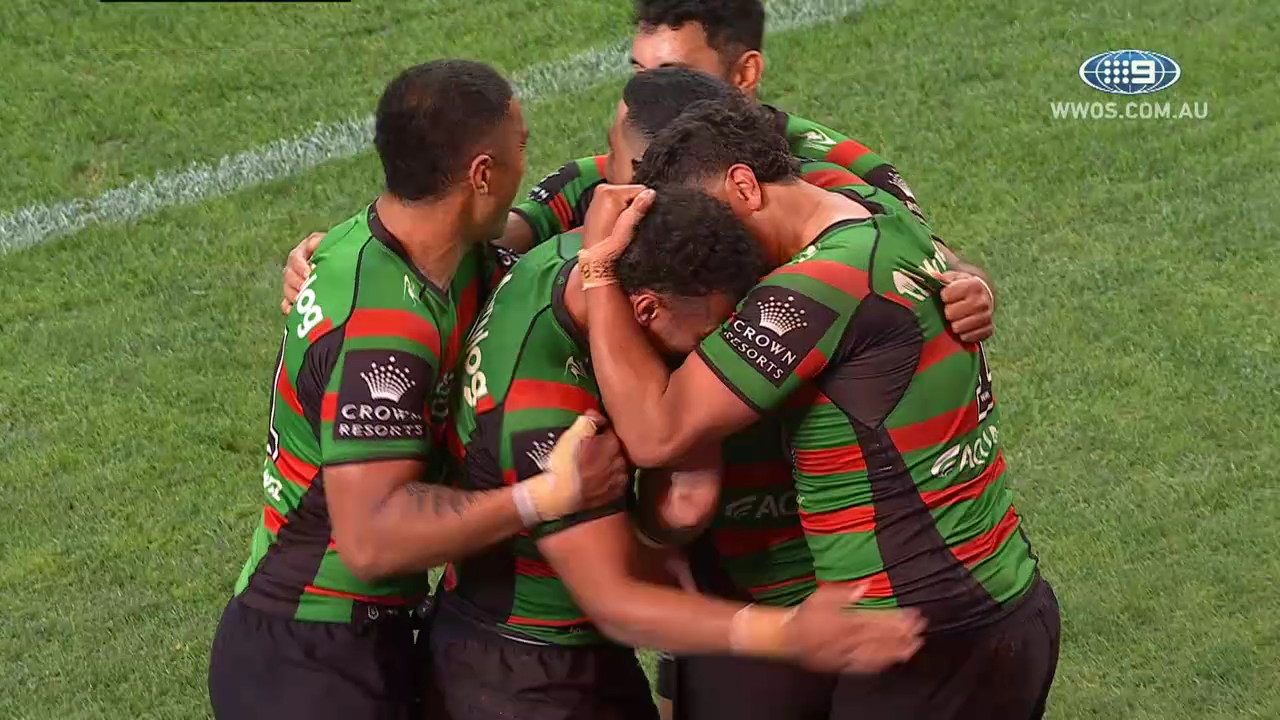
It was only a few years ago that James Graham was on the other side of the field when Sam Burgess played through an entire grand final with a broken cheekbone - and would later admit that he didn't remember much of the contest.
There's little doubt that if that had taken place this year, the eventual Clive Churchill Medallist would have been taken from the field - as James Tedesco was on Sunday.
But rather than lament the lack of impact the NSW captain could have on the finals series, Graham chose to look at the positives, as HIAs have become more prevalent and players being rubbed out of games is more commonplace.
READ MORE: Lockyer reveals teenager to revive woeful Broncos
READ MORE: Banned NBA owner fined millions after probe
READ MORE: Socceroos hand shock squad spot to teen star
"It's a positive sign that the NRL and the players are taking this seriously," Graham told Wide World of Sports.
"Arguably the best player in the world in James Tedesco left the field with a category two, and didn't return. I don't know if we would have seen that five years ago. He likely would have stayed on."

Tedesco was removed from the field after wearing a high tackle from Tom Burgess, the latter now facing a two-week suspension as a result.
"There is a culture shift happening - we're products of our environment, and that's the environment that we're in right now," Graham said.
"I think it's a positive look that players were punished for high tackles."
It's a remarkable shift in attitude from Graham who has become an ardent campaigner for better research towards head injuries since retiring from the game.
He has even launched his own podcast, Head Noise, to examine the world of head trauma with both concussion experts and former athletes.

There are some people that are apprehensive about the future of contact sport, and the NRL in particular - but Graham said we can have our cake and eat it too.
"We can look to significantly reduce the amount of head contact - I'm not concerned about the future of our sport or the survival of our sport," Graham said.
"It can exist ... we need to reduce the amount of traumatic brain injuries or concussions that are sustained throughout a career."
There is no perfect system, and even with independent doctors, honesty is key.
"The best advice I could give is not to hide symptoms or default to 'I'm OK' because it's important that we're up front and honest with doctors," Graham said.
"At the moment, the technology isn't there, so it's easy to default to that position - and the message needs to be that if you're symptomatic, you need to be truthful."
Stream the NRL premiership 2022 live and free on 9Now
"What I've come to understand is that we're looking as a game to significantly reduce the number of concussions that happen, whether it's through rule changes or punishments for individuals, or removing people from the field of play."
The former Bulldogs and Dragons prop cited Goldman's dilemma, a social experiment from the 1970s and 1980s, as a clear example of how the mindset of elite sportspeople has shifted.

The question posed was simple enough: would you take a drug that guaranteed success, if it would also kill you? As attitudes evolved throughout time, the number of athletes saying 'yes' gradually declined, and was almost at zero per cent in recent studies.
"This is where this is such a complex issue, and we need to recognise that we're dealing with a very small section of the population in highly-motivated professional athletes," Graham said.
Sport, and in particular team sport, the need to win supersedes everything else - as Burgess did in that grand final, players are either encouraged, or even expected, to fight through pain barriers for the good of the team.
And it's the coaches, not the doctors, that need to be front and centre of changing that.
"We've got the protocols and the guidelines but you've got to remember who we're dealing with, which is why I think it's imperative that the coaches are so involved in the messaging," Graham said.
"They've got to set the tone, and deliver the message, and explain to the players that while they might think they want to be out there, it's actually detrimental to the cause - if that is indeed the case.
"As a player myself, I understand why they would feel the urge to continue on - I've been that person before, where we have such a focus on winning and performance and not necessarily our future. But I think the focus is starting to shift and I don't think that's a bad thing."
For a daily dose of the best of the breaking news and exclusive content from Wide World of Sports, subscribe to our newsletter by clicking here
It was only a few years ago that James Graham was on the other side of the field when Sam Burgess played through an entire grand final with a broken cheekbone - and would later admit that he didn't remember much of the contest.
There's little doubt that if that had taken place this year, the eventual Clive Churchill Medallist would have been taken from the field - as James Tedesco was on Sunday.
But rather than lament the lack of impact the NSW captain could have on the finals series, Graham chose to look at the positives, as HIAs have become more prevalent and players being rubbed out of games is more commonplace.
READ MORE: Lockyer reveals teenager to revive woeful Broncos
READ MORE: Banned NBA owner fined millions after probe
READ MORE: Socceroos hand shock squad spot to teen star
"It's a positive sign that the NRL and the players are taking this seriously," Graham told Wide World of Sports.
"Arguably the best player in the world in James Tedesco left the field with a category two, and didn't return. I don't know if we would have seen that five years ago. He likely would have stayed on."

Tedesco was removed from the field after wearing a high tackle from Tom Burgess, the latter now facing a two-week suspension as a result.
"There is a culture shift happening - we're products of our environment, and that's the environment that we're in right now," Graham said.
"I think it's a positive look that players were punished for high tackles."
It's a remarkable shift in attitude from Graham who has become an ardent campaigner for better research towards head injuries since retiring from the game.
He has even launched his own podcast, Head Noise, to examine the world of head trauma with both concussion experts and former athletes.

There are some people that are apprehensive about the future of contact sport, and the NRL in particular - but Graham said we can have our cake and eat it too.
"We can look to significantly reduce the amount of head contact - I'm not concerned about the future of our sport or the survival of our sport," Graham said.
"It can exist ... we need to reduce the amount of traumatic brain injuries or concussions that are sustained throughout a career."
There is no perfect system, and even with independent doctors, honesty is key.
"The best advice I could give is not to hide symptoms or default to 'I'm OK' because it's important that we're up front and honest with doctors," Graham said.
"At the moment, the technology isn't there, so it's easy to default to that position - and the message needs to be that if you're symptomatic, you need to be truthful."
Stream the NRL premiership 2022 live and free on 9Now
"What I've come to understand is that we're looking as a game to significantly reduce the number of concussions that happen, whether it's through rule changes or punishments for individuals, or removing people from the field of play."
The former Bulldogs and Dragons prop cited Goldman's dilemma, a social experiment from the 1970s and 1980s, as a clear example of how the mindset of elite sportspeople has shifted.

The question posed was simple enough: would you take a drug that guaranteed success, if it would also kill you? As attitudes evolved throughout time, the number of athletes saying 'yes' gradually declined, and was almost at zero per cent in recent studies.
"This is where this is such a complex issue, and we need to recognise that we're dealing with a very small section of the population in highly-motivated professional athletes," Graham said.
Sport, and in particular team sport, the need to win supersedes everything else - as Burgess did in that grand final, players are either encouraged, or even expected, to fight through pain barriers for the good of the team.
And it's the coaches, not the doctors, that need to be front and centre of changing that.
"We've got the protocols and the guidelines but you've got to remember who we're dealing with, which is why I think it's imperative that the coaches are so involved in the messaging," Graham said.
"They've got to set the tone, and deliver the message, and explain to the players that while they might think they want to be out there, it's actually detrimental to the cause - if that is indeed the case.
"As a player myself, I understand why they would feel the urge to continue on - I've been that person before, where we have such a focus on winning and performance and not necessarily our future. But I think the focus is starting to shift and I don't think that's a bad thing."
For a daily dose of the best of the breaking news and exclusive content from Wide World of Sports, subscribe to our newsletter by clicking here
https://ift.tt/qR7SgOx//

No comments:
Post a Comment